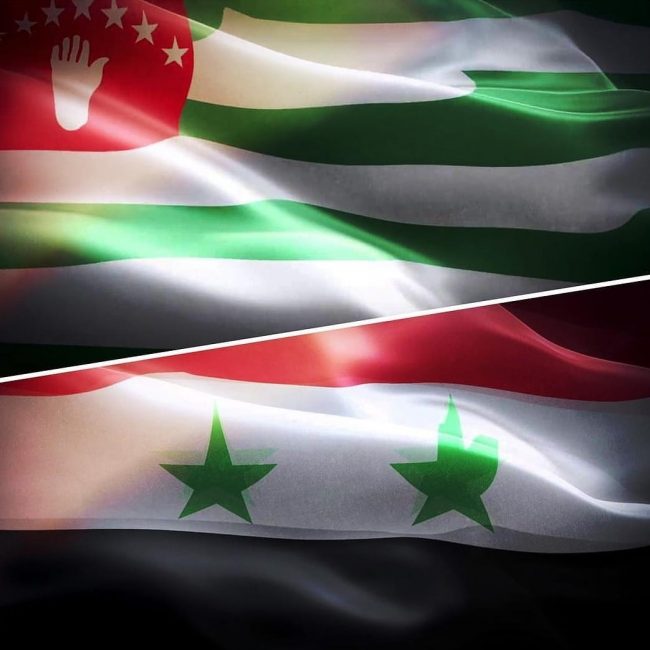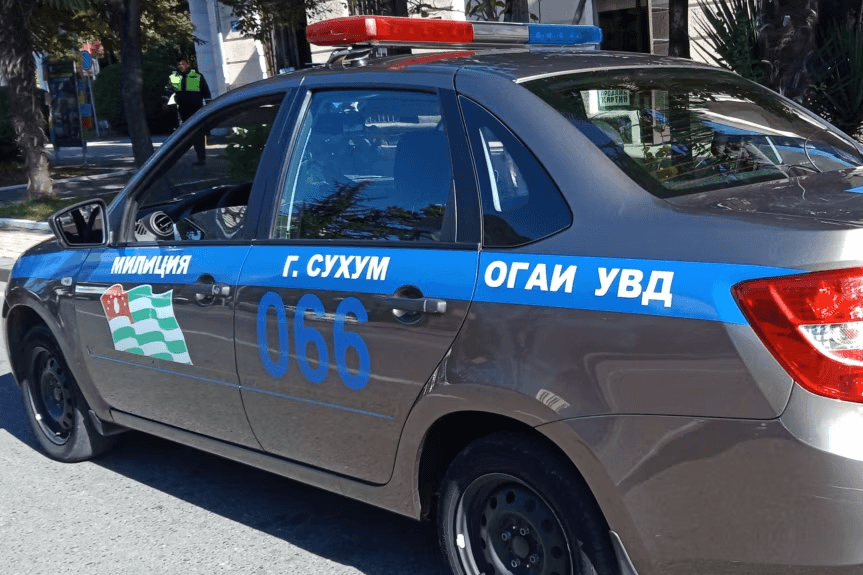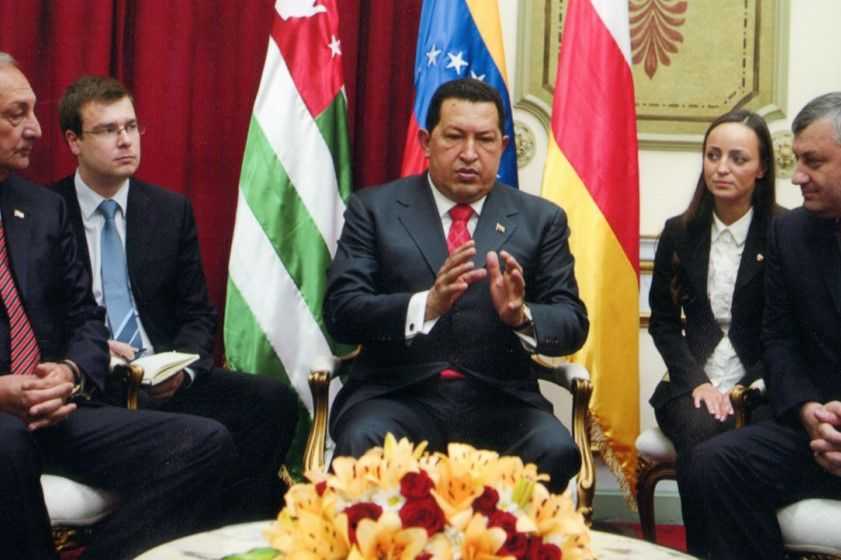

 A number of Western countries and international organisations have condemned the Syrian government’s decision to recognise Abkhazia and South Ossetia as independent states. Syria made the announcement on Tuesday, becoming the fifth state to do so.
A number of Western countries and international organisations have condemned the Syrian government’s decision to recognise Abkhazia and South Ossetia as independent states. Syria made the announcement on Tuesday, becoming the fifth state to do so.
Syria follows Russia, Nicaragua, Venezuela, and Nauru in recognising Abkhazia and South Ossetia (Tuvalu revoked its recognition in 2013, while Vanuatu recognised only Abkhazia and revoked it in 2014).
Abkhazian and South Ossetian authorities hailed Syria’s decision, while the Georgian government condemned Syria for failing to respect Georgia’s territorial integrity or international law, announcing it would start procedures terminating diplomatic ties with Syria.
[Read more about on initial reactions to Syria’s decision on OC Media: Georgia cuts diplomatic relations with Syria after it recognises Abkhazia and South Ossetia]
The recognition was promptly criticised by a number of Western countries and international organisations.
US State Department spokesperson Heather Nauert called Syria’s decision ‘ill-advised’ but not surprising, as ‘Bashar al-Assad is propped up by the Russian regime’. The State Department’s statement the following day confirmed US ‘support for Georgia’s sovereignty, independence, and territorial integrity within its internationally recognised borders’, and urged other states ‘to be mindful of their obligations under the UN Charter and do the same’.
The EU said in a statement that Syria’s decision to establish diplomatic ties with Abkhazia and South Ossetia violated ‘international law and the principle of territorial integrity as defined by the United Nations Charter and relevant UN Security Council resolutions’.
The United Kingdom, Germany, Finland, Ukraine, Lithuania, Latvia, and Estonia also condemned Syria’s decision. ‘This move will do nothing to bring peace closer. Once again, both the Syrian regime and Russia are aggressively trying to undermine the rules-based international order’, British Foreign Office Minister for Europe and the Americas Sir Alan Duncan said in a statement.
Turkey also called the decision a ‘violation of international law’ and expressed support for Georgia’s territorial integrity.
Speaking to Russian state-run media Sputnik Abkhazia, Syrian Parliament Committee Chair for Arab and Foreign Countries Butrus Marjan called the decision ‘a part of [Syria’s] policy of “enlargement eastward” ’, explaining Georgia’s response to sever diplomatic relations was a part of Georgia’s involvement in an ‘anti-Syria conspiracy’.
Russia has been providing direct military support for the Syrian government in it’s bloody civil war since 2015, helpoing embattled President Bashar al-Assad’s to stay in power.
‘Limited options’
Speaking to OC Media, Olesya Vartanyan, an analyst with the International Crisis Group, said that previous cases of recognition were a matter of what Russia had to offer.
‘In Latin American countries, it was about weaponry; in the case of Pacific countries, it was about money’, Vartanyan said.
Vartanyan said that Abkhazia and South Ossetia were not regions that produce anything that could be of economic interest for Syria, ‘so we still have to wait and see what more Syria could get from recognition’.
She pointed out that Abkhazia received the first wave of Syrian refugees four years ago, but that they had visa problems in reaching Abkhazia via Russia, who was not yet involved in Syria’s military conflict. ‘For Abkhazia, being a very small society, to receive refugees and assist them was a very big step’.
According to Vartanyan, unlike the South Ossetian authorities, who only recently started talking openly about developing ties with Syria, ‘Abkhaz efforts have been gaining tract for years’. The latest effort was in August 2017, when a large delegation from Abkhazia visited Damascus, she said. ‘It was a very explicit sign that something was going on, there was some discussion’, said Vartanyan.
Vartanyan said that Syria’s recognition ‘probably was not something that caught the Georgian Foreign Ministry by surprise, which probably worked hard to avoid it’. However, she said their options were likely limited.
‘In many cases, when it comes to its nonrecognition policy, Georgia has to work mainly through its Western partners, mainly the US. When the West is out, there are very few resources to really push for something different, especially with countries that are in conflict, vulnerable, and so so much dependent on Russia’, said Vartanyan.
‘Actually, Georgia has been extremely successful in working with countries in the Middle East, for example with Saudi Arabia. Moreover, sometimes the Georgian government has been criticised by diplomats and foreign organisations for doing too much on its foreign nonrecognition policy, and that it spoils reconciliatory projects, the policy of engagement, and building relationships with the breakaway regions.’
Speaking to RFE/RL’s Ekho Kavkaza, Chief Researcher at the Dialogue of Civilisations Research Institute, Aleksey Malashenko, said that Syria’s recognition was ‘a blow to Russia’s prestige’ while Bashar al-Assad’s government was ‘a regime not recognised by anyone’ and would not suffer much damage either from Georgia’s response to cut diplomatic ties or from international criticism. Malashenko did not exclude the possibility that it could have been Assad’s decision and not a response to Russian pressure.
Professor Tornike Sharashenidze of the Georgian Institute of Public Affairs also did not rule out that it could have been Assad’s government taking the initiative to establish diplomatic ties with Abkhazia and South Ossetia. In a recent opinion piece for Liberali, Sharashenidze argued that Assad’s ethnic Alawite regime was in a weak position in the region as it was supported mostly by the Russian military and had complicated relations with neighbouring Sunni Arab countries. According to Sharashenidze, Venezuela’s recognition of Abkhazia and South Ossetia that shortly after triggered Nicaragua’s decision were a much bigger danger to Georgia’s nonrecognition policy.
For ease of reading, we choose not to use qualifiers such as ‘de facto’, ‘unrecognised’, or ‘partially recognised’ when discussing institutions or political positions within Abkhazia, Nagorno-Karabakh, and South Ossetia. This does not imply a position on their status.









